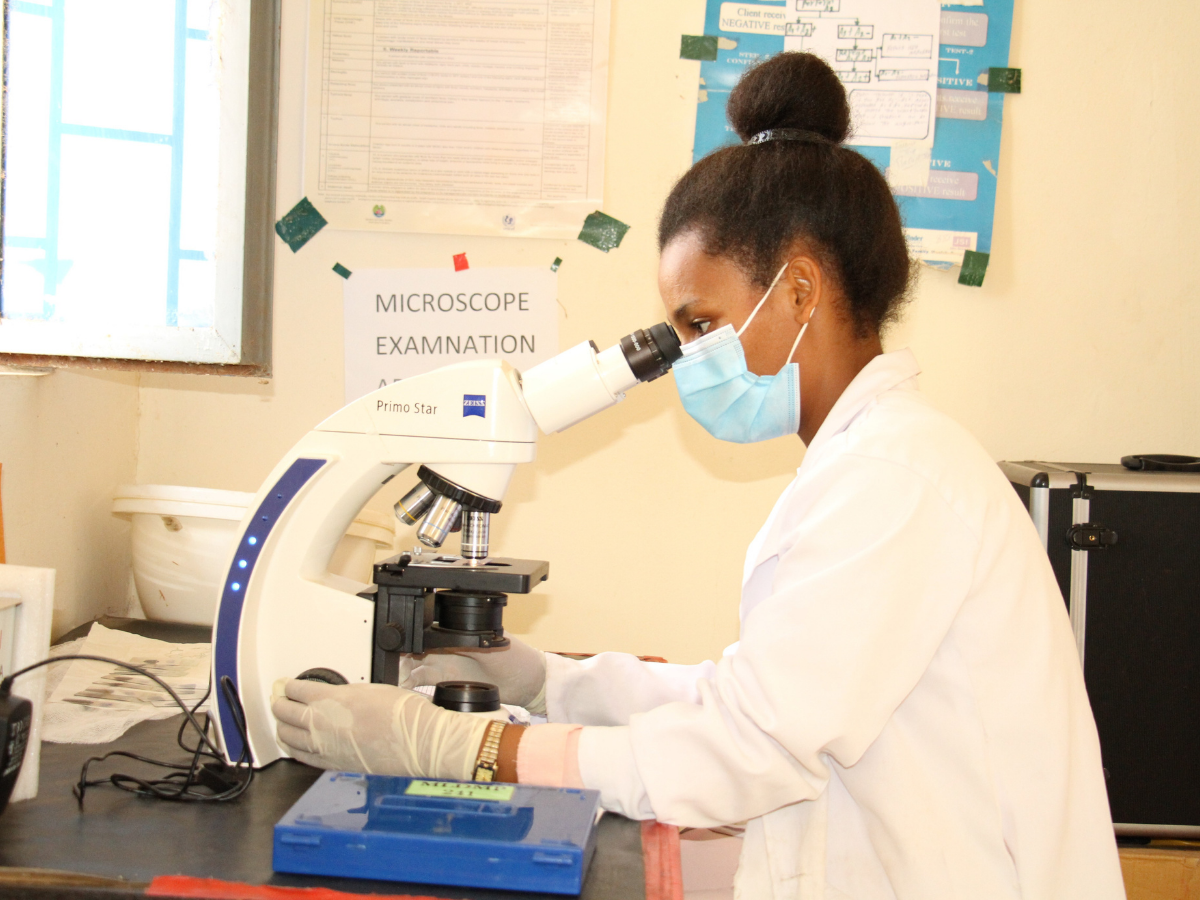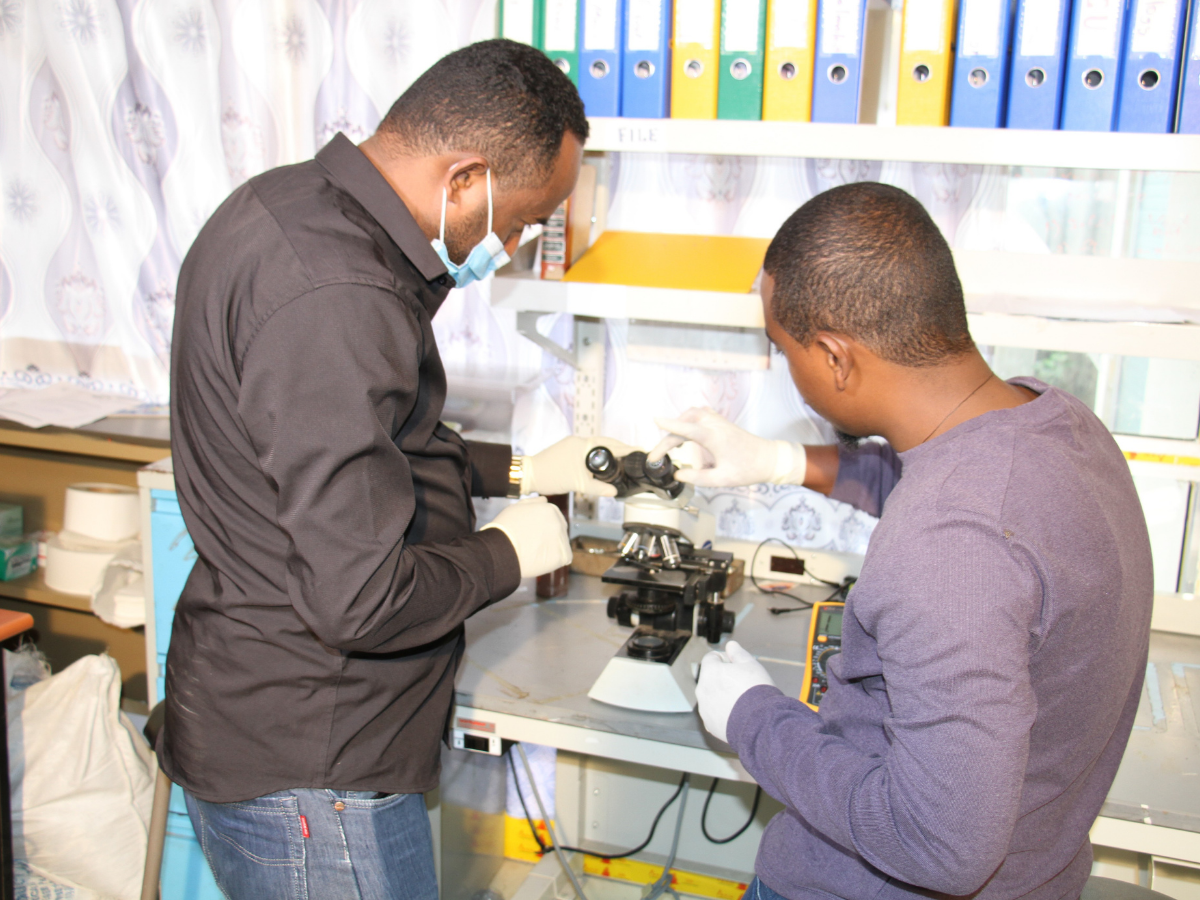Malaria is one of the leading causes of mortality and morbidity in tropical and subtropical regions. In Ethiopia, 60 percent of the population lives in malaria-prone areas.
A major barrier to managing malaria in Ethiopia is faulty or unmaintained laboratory equipment critical to diagnosing, and thus treating, the disease.
With funding from the U.S. Agency for International Development through the President’s Malaria Initiative (PMI), ICAP at Columbia University’s Malaria Diagnosis and Treatment Activity (MDTA) is training biomedical engineers and technicians across the country to repair broken malaria diagnostic equipment. To date, 27 biomedical engineers and technicians from health facilities and higher education institutions in the Amhara region and 205 technicians at the national level have received training on how to repair such equipment as microscopes, centrifuges, cold chain equipment, biosafety cabinets, and incubators.
“Malaria is one of the top public health issues in Ethiopia, but there is a major scarcity of skilled engineers and technicians who can repair equipment when it malfunctions due to technical, electrical, and mechanical defects,” said Bereket Hailegiorgis, MD, MS, principal investigator and chief of party of MDTA. “We want to provide knowledge on both corrective and preventive maintenance services so that we can avoid damage before it happens or act quickly when it does and ensure access to uninterrupted and accurate diagnostic services.”
Menzero Health Center in the Amhara region of Ethiopia, for example, is one of the busiest health facilities in the region. The center’s ability to diagnose malaria by way of microscopy – the gold standard technique for diagnosing malaria – was hindered by the fact that three of the health center’s microscopes were broken and sat idly for more than a year. Instead, health care workers at the center used rapid diagnostic tests (RDT), which often do not identify low numbers of malaria parasites circulating in a patient’s bloodstream. The health care team was forced to send patients with high fevers and other clinical malaria symptoms to a different hospital where microscopic diagnosis was available.
Similarly, Wogedadi Health Center, also in the Amhara region, had not a single working microscope in service at one point and depended solely on RDT for malaria diagnosis.
After biomedical engineering training from MDTA, technicians fixed the broken microscopes at both health centers. Altogether, biomedical engineers at 29 PMI-supported sites across six regions of the country have been trained on how to properly repair and maintain malaria diagnostic equipment.

Amanuel Walel is one such biomedical engineer at Felege-hiwot, a hospital in Bahir Dar, the capital city of the Amhara region.
“We have been applying the skills and knowledge which we acquired from the training to enhance access to quality malaria diagnostic services,” said Walel. “By ensuring the functionality of microscopes and other lab equipment, we are preventing interruption of malaria diagnosis and treatment services.”
Every year, there are more than 200 million new cases of malaria, a preventable and treatable disease. In 2020, there were an estimated 627,000 malaria-related deaths and approximately 47,000 of those deaths were linked to disruptions in the provision of malaria prevention, diagnosis, and treatment during the COVID-19 pandemic.
April 25 is World Malaria Day. The World Health Organization’s theme for the international day – “Harness innovation to reduce the malaria disease burden and save lives” – underscores the urgent need to make more effective use of currently available tools for the prevention, diagnosis, and treatment of malaria, particularly in countries hardest hit by the disease. With increased knowledge on the maintenance of malaria diagnostic equipment after training from MDTA, health centers in Ethiopia are one step closer to meeting that demand.
Zenebe Melaku, MD, country director of ICAP in Ethiopia, affirmed, “ICAP is committed to expanding its support to ensure the proper management and functionality of malaria diagnostic equipment in all PMI-supported sites in Ethiopia.”
About ICAP
A major global health organization that has been improving public health in countries around the world for nearly two decades, ICAP works to transform the health of populations through innovation, science, and global collaboration. Based at Columbia Mailman School of Public Health, ICAP has projects in more than 30 countries and is working side-by-side with ministries of health and local governmental, non-governmental, academic, and community partners to confront some of the world’s greatest health challenges. Through evidence-informed programs, meaningful research, tailored technical assistance, effective training and education programs, and rigorous surveillance to measure and evaluate the impact of public health interventions, ICAP aims to realize a global vision of healthy people, empowered communities, and thriving societies. Online at icap.columbia.edu








